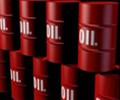Venezuelan oil sanctions crossroads could come amid summer dearth of diesel

US oil sanctions on Venezuela could reach a tipping point this summer if a dire diesel shortage further exacerbates a humanitarian crisis that continues to unfold even as President Nicolás Maduro has strengthened his hold on power.
President Joe Biden’s administration faces increasing calls to partially ease sanctions by again allowing crude-for-diesel swaps as a means of humanitarian aid, but doing so could indirectly help Venezuela produce more oil while keeping Maduro firmly in office.
The Biden administration is figuring how to seek concessions from Maduro while essentially knowing that ongoing US demands for regime change are unrealistic, energy and geopolitical analysts said.
“Venezuela could face a massive shortage of diesel in the next few months,” said Francisco Monaldi, Rice University fellow in Latin American energy policy. “There’s pressure on Biden to intervene in the humanitarian crisis. On the other hand, they don’t want to be seen as given up on this pressure without any concessions.”
Essentially, a geopolitical game of cat-and-mouse is being played out over Venezuela’s primary fuel source. Although the escalating diesel shortage is a very real issue, Monaldi said, Maduro may intentionally create even more diesel scarcity in order to put additional duress on Biden in an effort to blame the US for much of Venezuela’s economic woes.
Venezuelan state oil company PDVSA’s crude production has plunged from nearly 2.5 million b/d five years ago—and from 1.3 million b/d when US oil sanctions started in January 2019—down to just 300,000 b/d in the summer and fall during the peak of pandemic lockdowns. That is the lowest level for the country with arguably the world’s largest crude oil reserves since the US Energy Information Administration started recording production in 1973.
With exports to China on the rise, Venezuela is currently producing just more than 400,000 b/d and should go above 550,000 b/d by the end of this year, according to S&P Global Platts Analytics projections, and over 800,000 b/d by year-end 2022. Volumes could rise above 1 million b/d if most sanctions were lifted, but the country’s own infrastructure distress would prevent much larger gains.

Venezuela oil import forecast to 2022
Venezuela has reported its current output at closer to 500,000 b/d, and the Maduro regime has pledged to raise production to 1.5 million b/d by the end of 2021, but sources do not believe that is feasible.
Even if Venezuela were able to boost oil production, the country’s oil refineries continue to operate well below capacity.
Many of the US Gulf Coast’s refineries relied on heavy crude from Venezuela, but those refiners have been leaning more on other heavy imports, primarily from from Canada and Mexico. Likewise, Venezuela had counted on the US for fuel and blending volumes.
Diesel fueling politics
Until fall 2020, Italy’s Eni, Spain’s Repsol and India’s Reliance were all trading diesel for Venezuela’s crude oil in deals that helped maintain fuel supplies while also depleting Venezuela’s crude inventories to make room for more production.
Former President Donald Trump’s so-called “maximum pressure” campaign did away with the swaps in an effort to push Maduro out of office in favor of opposition leader Juan Guaidó. But the popularity of the 37-year-old opposition upstart has failed to rise since last year and his recognition as Venezuela’s true leader is waning both within the opposition effort and internationally.

“Really only the US still recognizes Guaidó,” said Fernando Ferreira, director of geopolitical risk for the Rapidan Energy Group. “We’re not ready to accept reality yet. We tried maximum pressure, and that didn’t work. Maduro is very much secure in his position today, and the risk of a coup is very low.”
While there is an expectation for some eventual easing of restrictions on diesel swaps, Ferreira said, there are not high hopes for major concessions on either side, except Maduro maybe agreeing to more free and open elections on the local and regional levels.
The matter is further challenged because Venezuela is relatively low on a Biden’s priority list behind domestic issues—the pandemic and vaccine rollout, climate change, infrastructure—and feuds with foreign rivals such as China, Iran and Russia, said Raad Alkadiri, senior director of Boston Consulting Group’s Center for Energy Impact.
At least there is a clear “end game” of preventing nuclear proliferation when it comes to debating oil sanctions with Iran, Alkadiri said.
“The end game in Venezuela isn’t as clear and doesn’t seem as much of a priority,” he said. “The broader lifting of oil sanctions doesn’t seem like it’s going to be a priority over the next few months.”
Earlier in March, the Biden administration made its first friendly policy foray when it offered temporary legal status to roughly 320,000 Venezuelan immigrants living in the US, helping to allay ongoing fears of deportation back to a country in crisis.
US Secretary of State Antony Blinken recently cited the “urgent humanitarian needs” and pledged continued support for Guaidó.
With diesel already being rationed, some Venezuelan truckers have held protests by temporarily blocking major highways. Venezuela has imported some gasoline from Iran, but the nation’s transportation is heavily diesel dependent, and Maduro has resisted large and expensive imports because diesel is still being distributed to truckers free of charge, as part of longstanding national policy.
There arguably remains more optimism on the ground in Venezuela. A representative of one of PDVSA’s partner companies in the Orinoco Belt, who spoke on condition of confidentiality, said he expects tweaks in sanctions to come as soon as May, especially with regard to diesel-for-crude swaps.
“We thought that the new administration was not going to review the licenses until June but, with the diesel shortage and the humanitarian crisis in Venezuela, it seems that Biden’s people want to rush those decisions,” he said.
Foreign allies and investments
With an already collapsing Venezuela further flailing from US sanctions, the Maduro regime has leaned more heavily on US rivals such as China and Iran.
Simply put, Monaldi said, Iran has tutored Venezuela on how to evade sanctions by shipping crude using shell companies, tankers going dark, secretive transfers and more. “Eventually, almost all of it ends up in China,” he said.
In the meantime, Maduro has begun to seek more investments, as has the private sector.
The Venezuelan Association of Private Capital, called Venecápital, was launched with the pitch, “Let’s share Venezuela’s extraordinary investment potential.”
As such, Venezuela is seeking more crude oil joint venture projects, including with Russia, and there remains the possibility of Maduro privatizing more oil facilities. Maduro also has asked China for new investments under its anti-blockade law, which was enacted in September to let the government to make more private deals in secret.
All of this, of course, is easier said than done.
Maduro critic Miguel Rodriguez, a former Venezuelan planning minister and banking president from before the Hugo Chavez regime, said the obvious problem is Venezuela has “squandered” all of its oil successes and revenues because Chavez and Maduro turned PDVSA into “scrap metal.”
“If the sanctions are lifted, investments will come,” he said. “Venezuela is a piñata full of candies and toys waiting for it to fall.”
But the corruption and wasting of revenues will not change without free elections and regime change, Rodriguez said.
Russ Dallen, a legal and financial analyst with Caracas Capital in Miami, was quick to criticize the private investment campaign, calling it a “Potemkin village … masquerade.”
“Having run out of other people’s money, Venezuela is now trying to lure new investors,” he said.
Even if the Maduro regime wanted to, Dallen said, it has little money to even begin paying back debts and no real prospects to begin servicing them any time in the near future.
Citgo and other leverage
Venezuela’s most valuable foreign asset remains Houston-based refiner Citgo Petroleum, a PDVSA subsidiary that is currently controlled by the Guaidó opposition thanks to US intervention.
However, PDVSA’s massive debts have turned Citgo into the prized jewel sought by its creditors, from the now-defunct Canadian mining firm Crystallex to ConocoPhillips.
The only thing keeping Citgo shares from being auctioned off is a Trump-era ban on doing so that was extended until July 21, now leaving the matter up to Biden. The idea for the hold is that the Venezuelan opposition is strengthened by maintaining oversight of Citgo.
But US federal court rulings have repeatedly decided that PDVSA’s creditors can seize Citgo shares and auction them in order to recoup what they’re owed. A new March 16 ruling reiterated that stance, including moving forward with the appointment of a special master to oversee the Citgo sale.
With so many question marks, Maduro is left with trying to move as much crude oil as PDVSA can without giving it away at too deep of discounts.
“The restriction right now is not the production, it’s the capacity to export,” Monaldi said. “They can only produce more when they can sell more oil.”
Source: Platts

 Hellenic Shipping News Worldwide Hellenic Shipping News Worldwide, Online Daily Newspaper on Hellenic and International Shipping
Hellenic Shipping News Worldwide Hellenic Shipping News Worldwide, Online Daily Newspaper on Hellenic and International Shipping





















 PG-Software
PG-Software